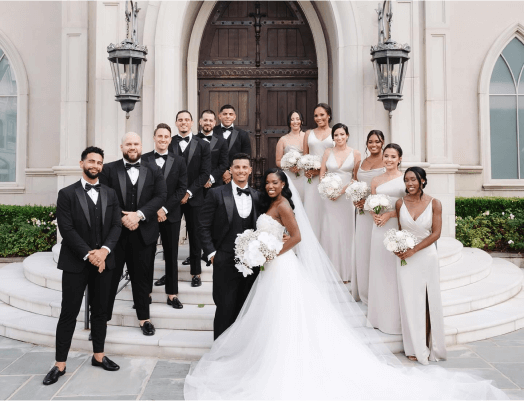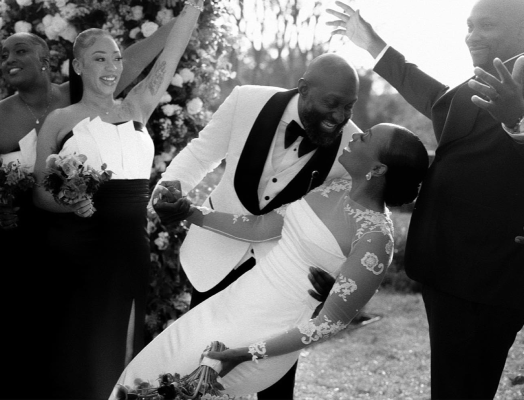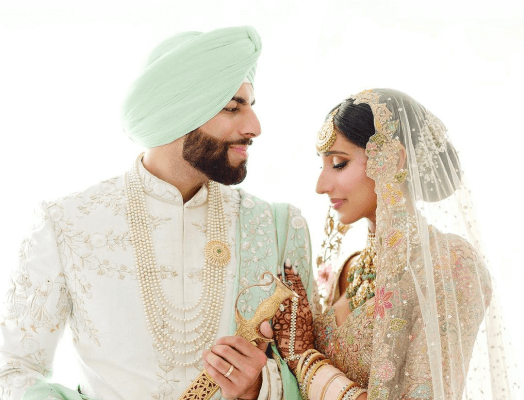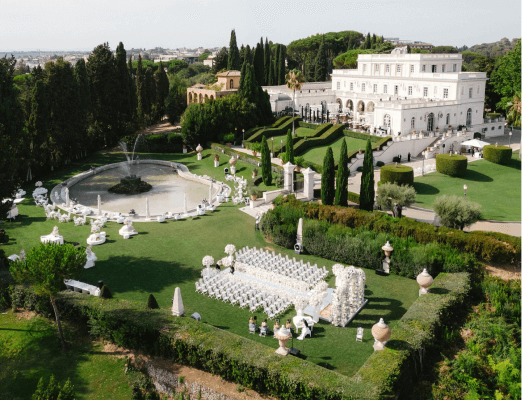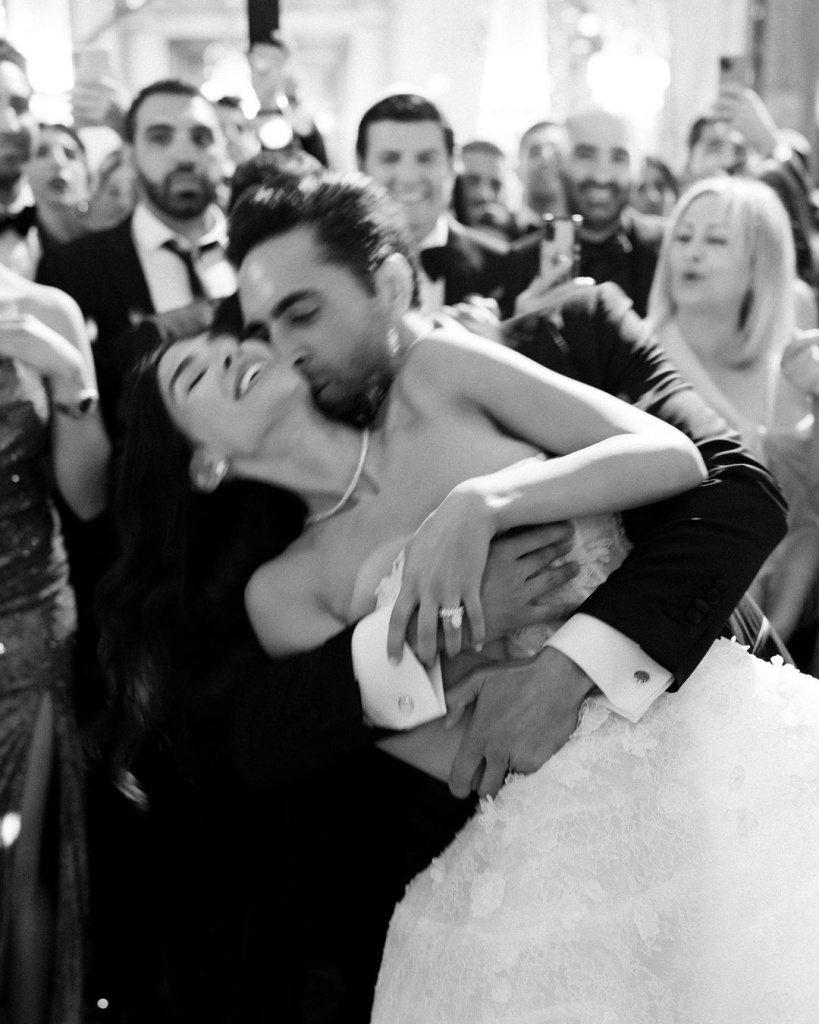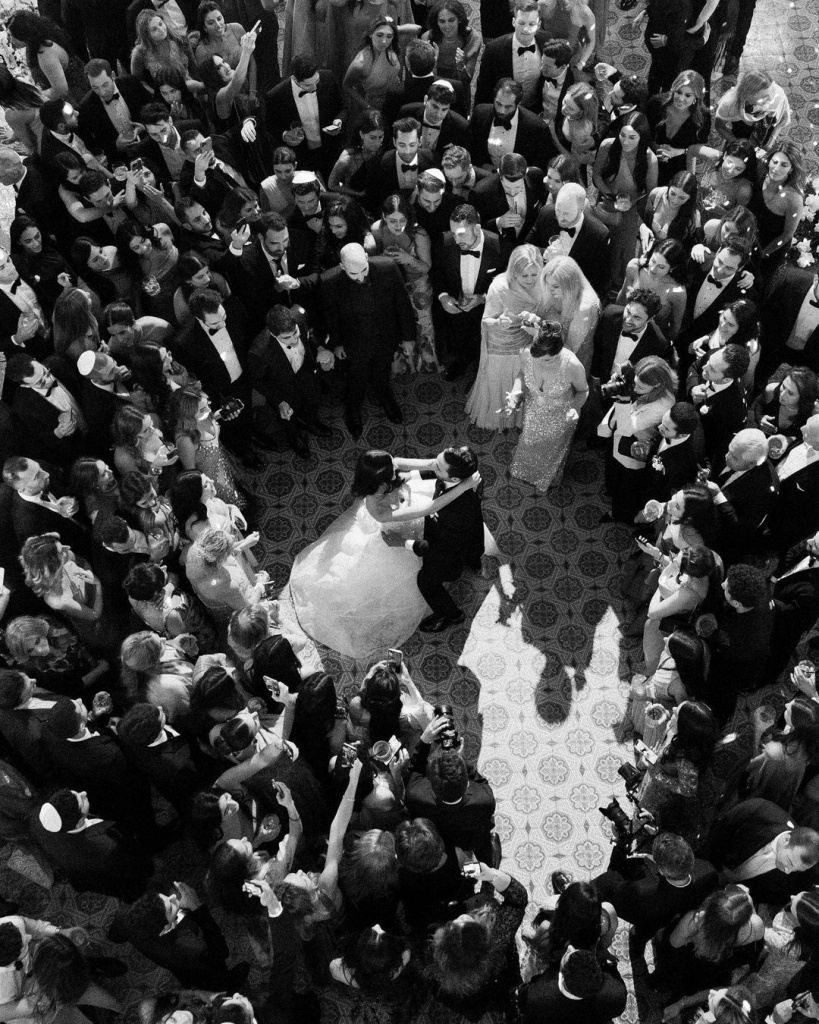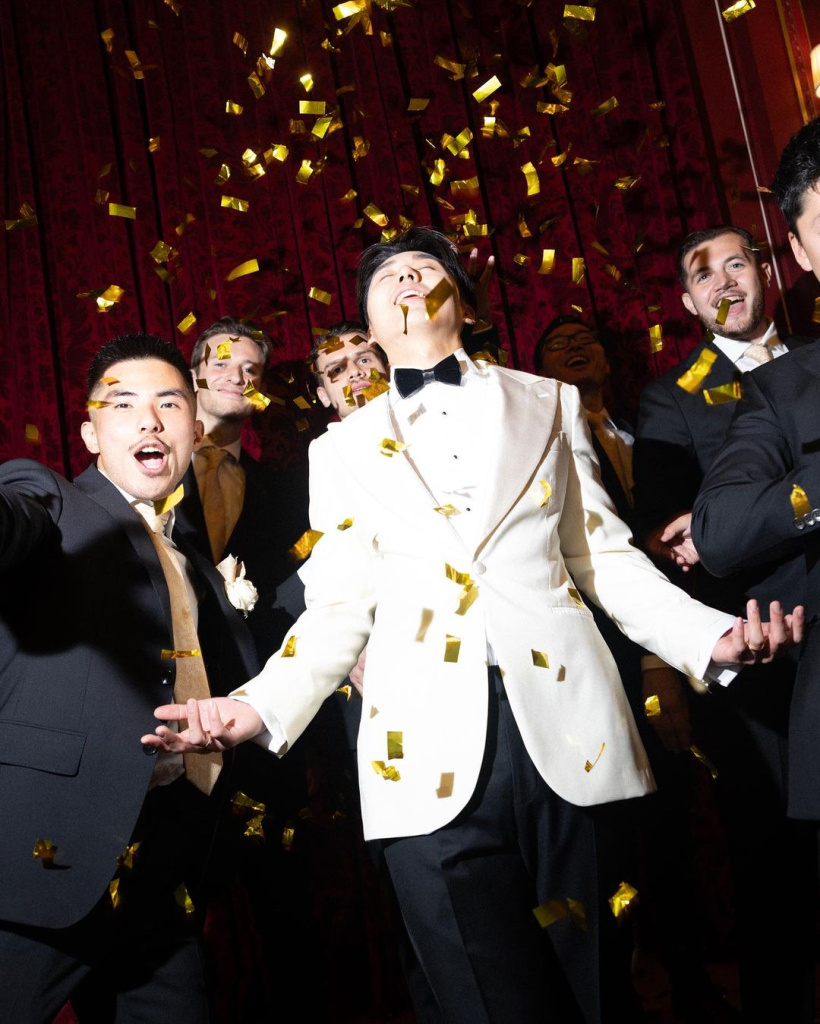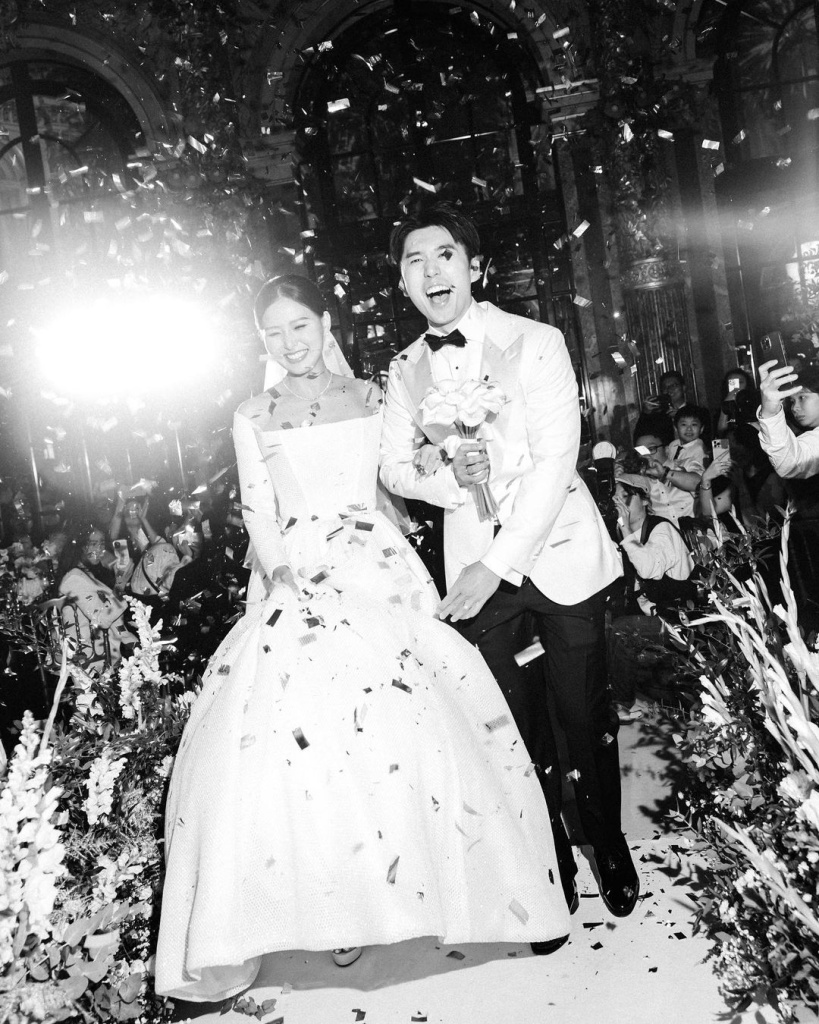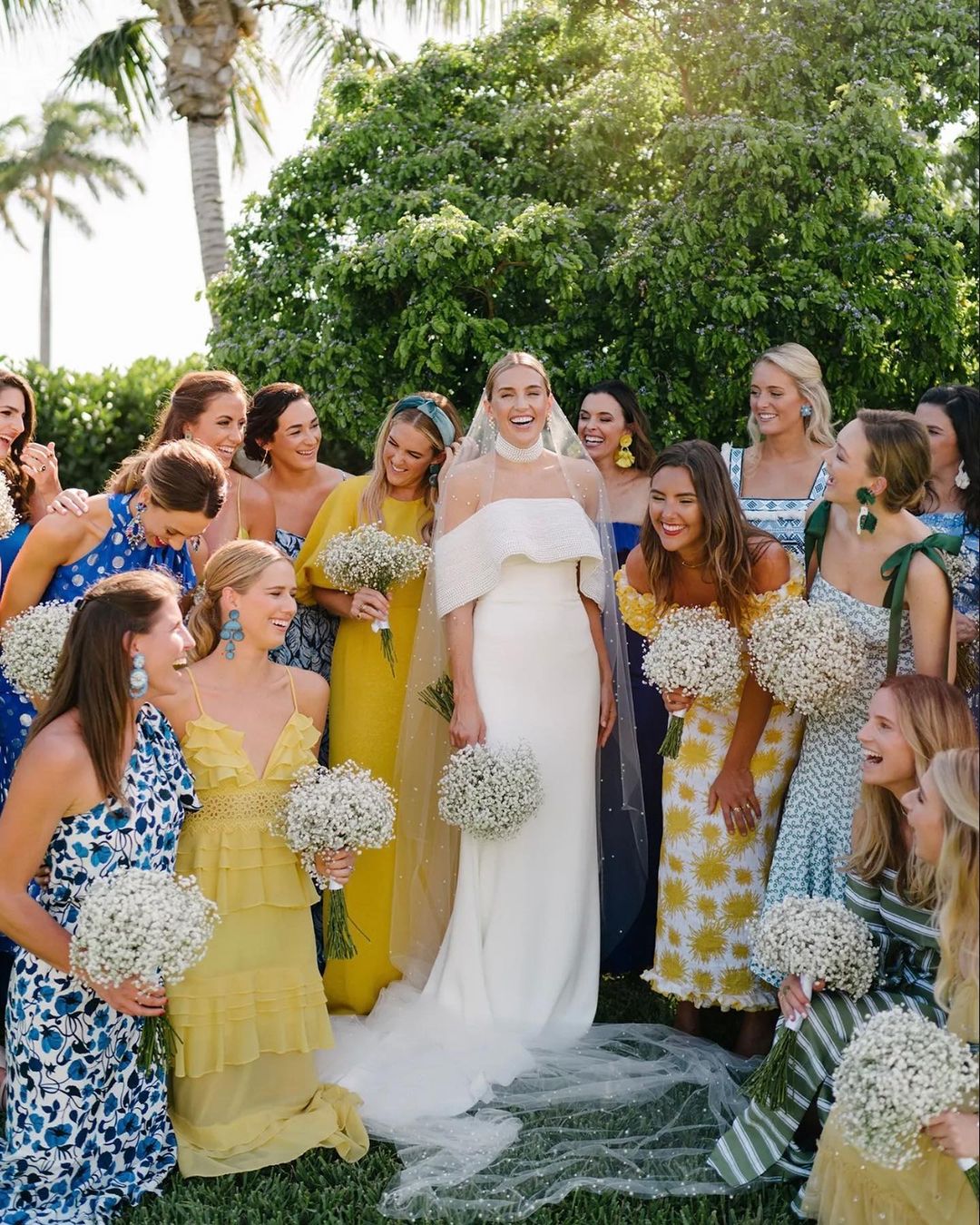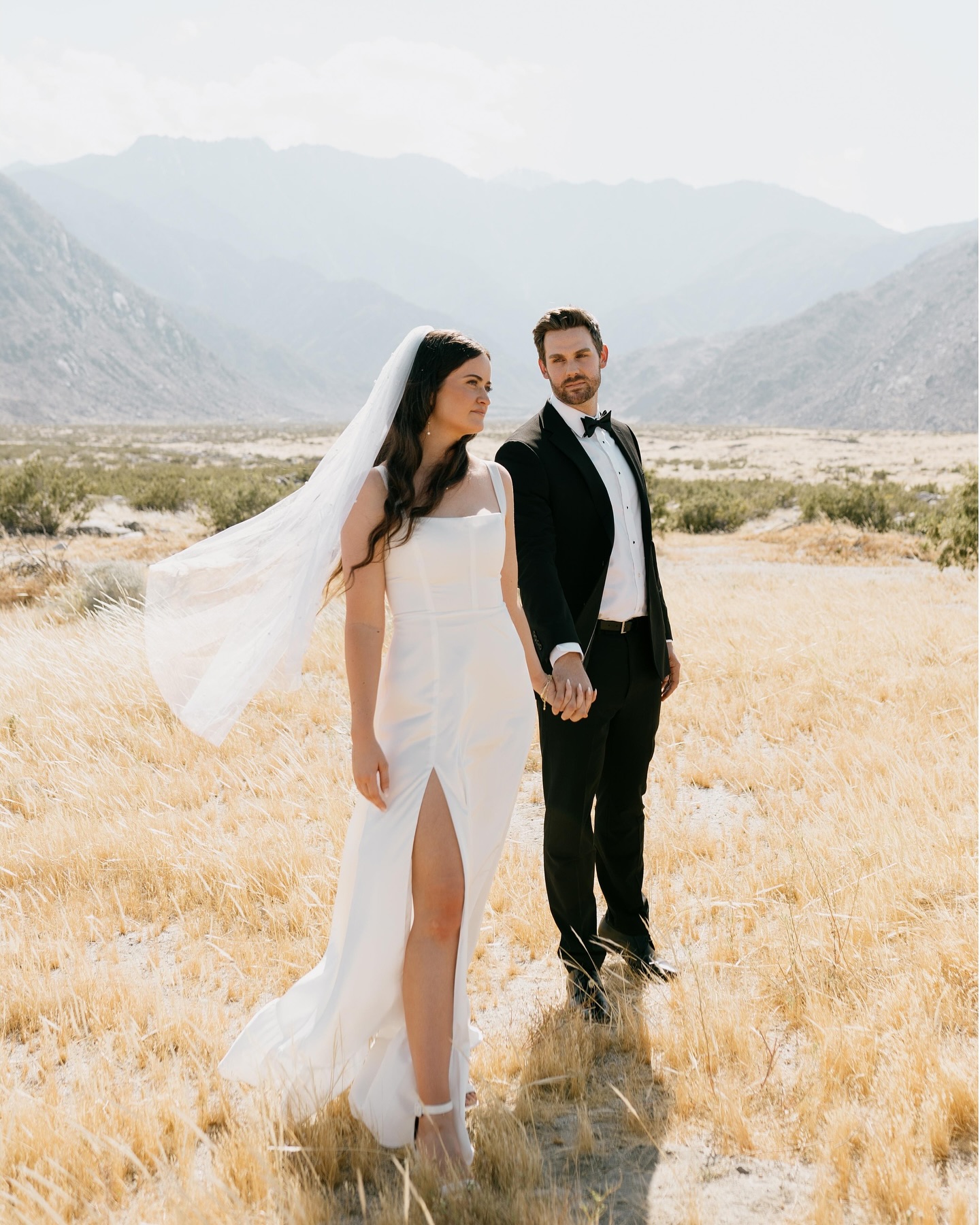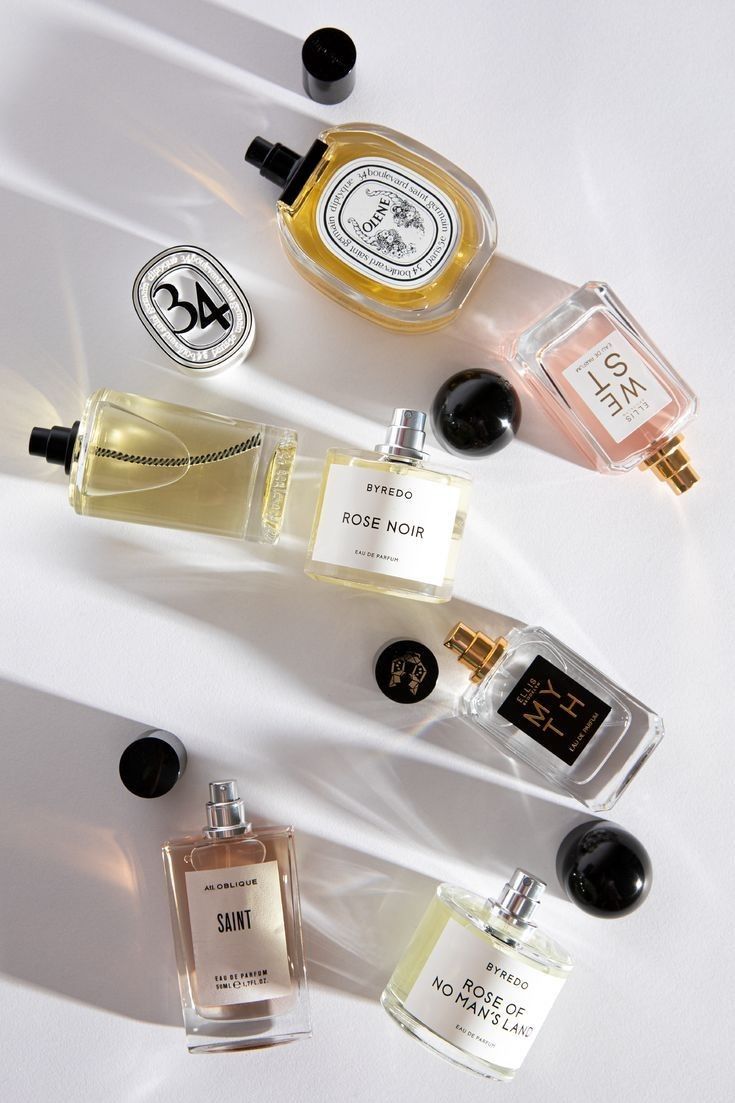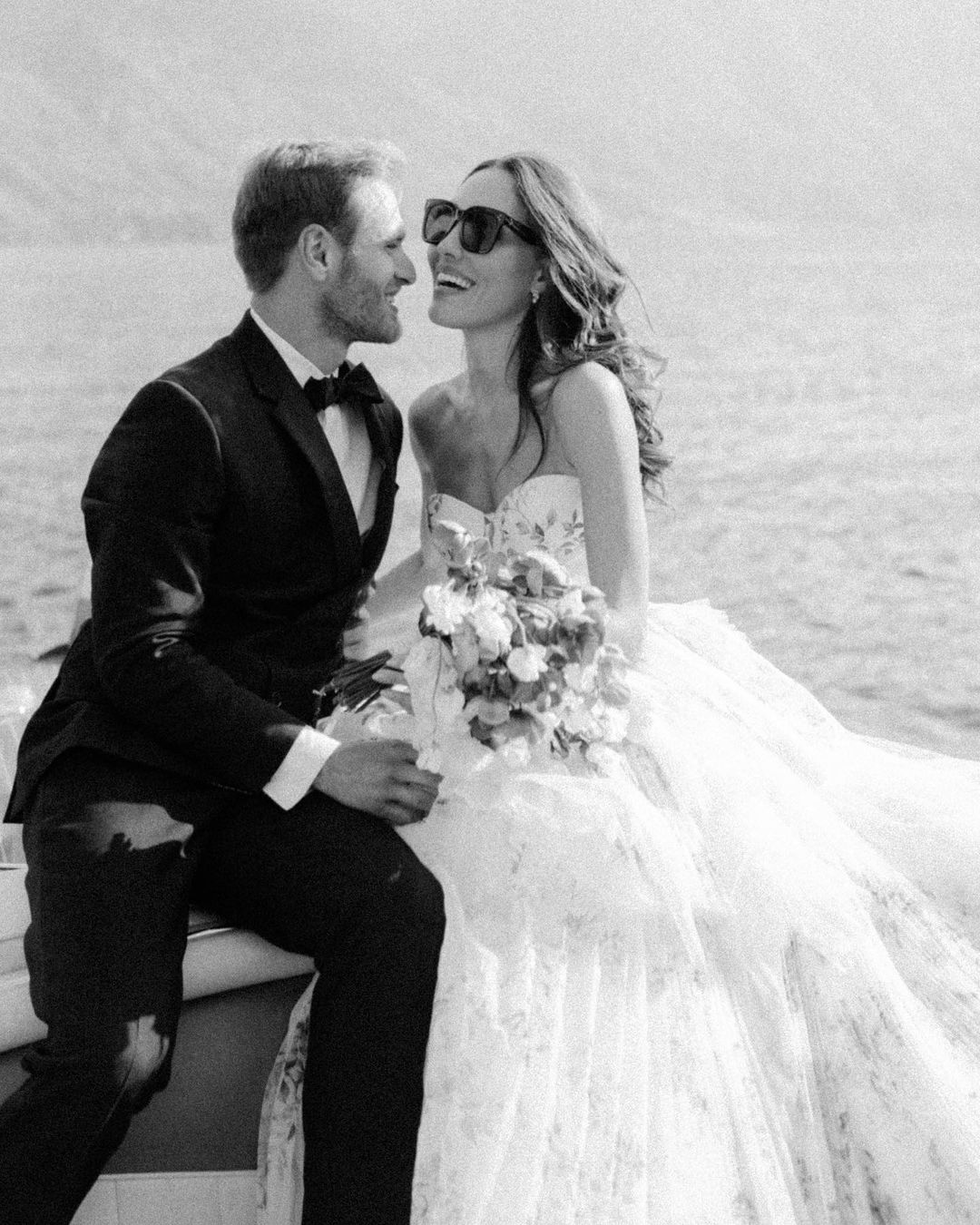Understanding the Unique and Traditional Roles in Your Wedding Party
- Author: Natali Grace Levine
- Reading time: 10 min 26 sec
- Publication date: 06/10/2024
- Updated: 01/16/2025
When you’re planning a wedding, figuring out the roles in a wedding party can be as challenging as choosing the perfect venue or menu. Who stands by your side on one of the most memorable days of your life is a big decision! Whether it’s the calming presence of a best man, the supportive smile of a bridesmaid, or the proud tears of your parents, each member of your wedding party plays a pivotal role in making your day special. Here’s your go-to guide to understanding everyone's roles and responsibilities, ensuring everyone knows exactly what’s expected on your big day.
Find Your Perfect Wedding Vendors
Wedding Roles List
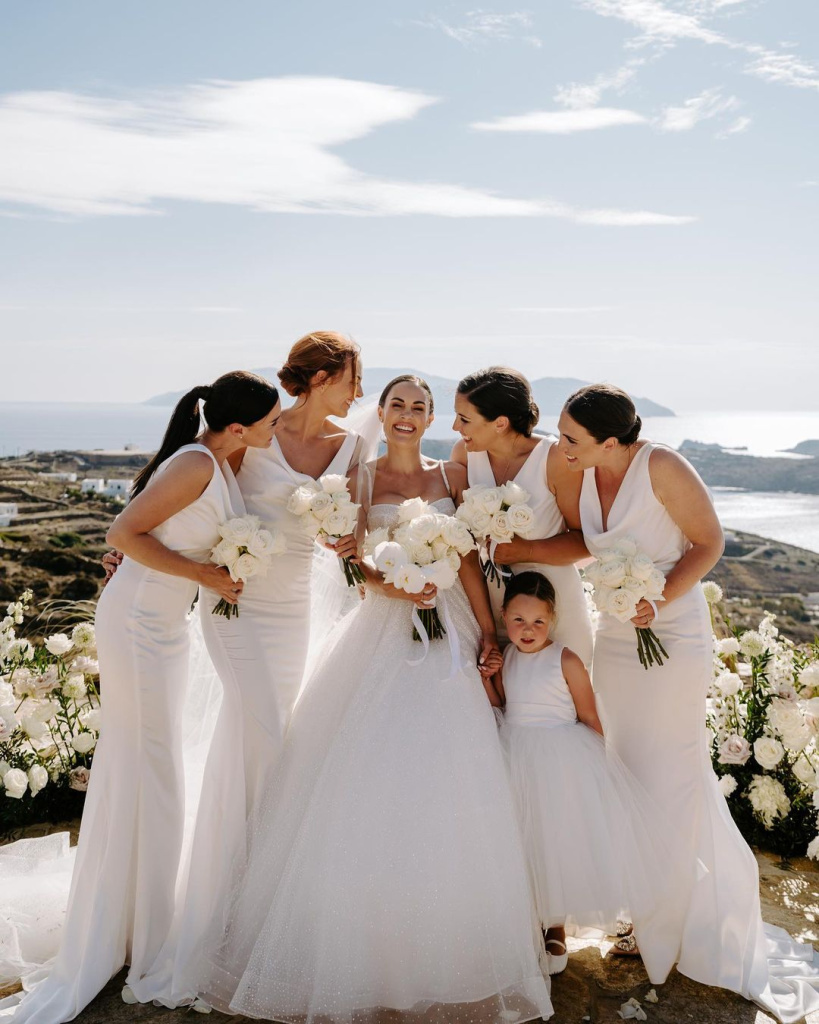
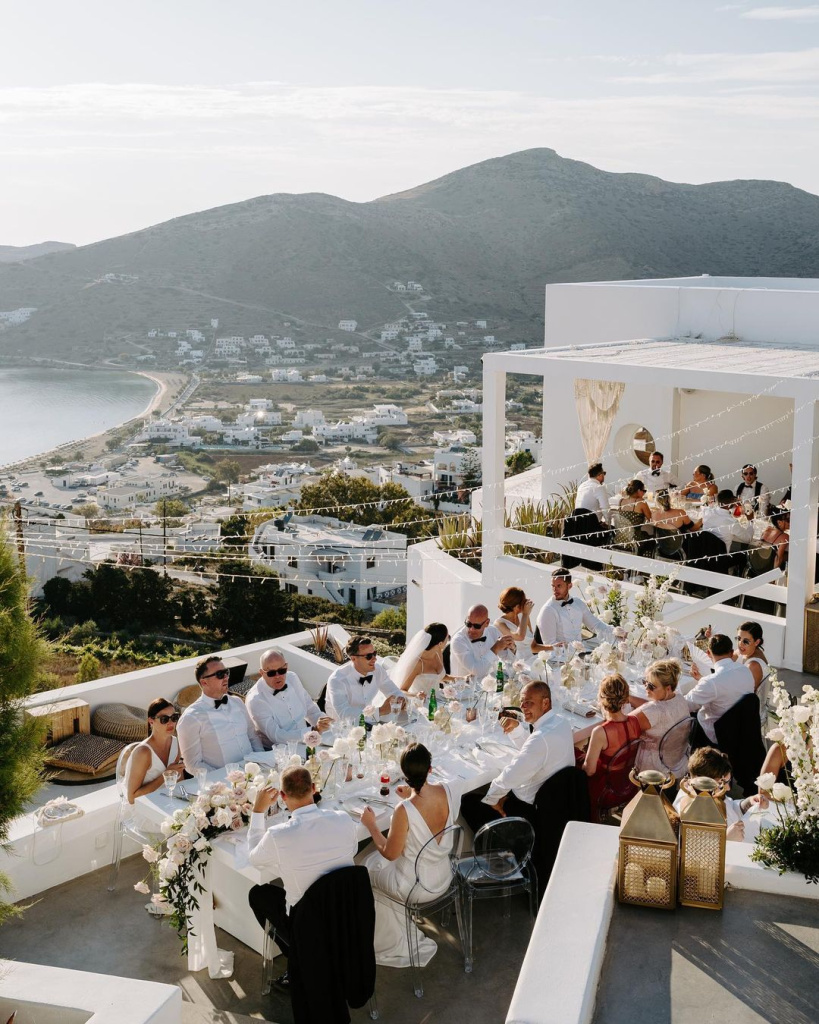
To ensure your wedding day goes smoothly, it's important to know who's who in your wedding roles list. Here’s a comprehensive breakdown:
- Bride and Groom
- Maid of Honor
- Best Man
- Bridesmaids
- Groomsmen
- Flower Girl
- Ring Bearer
- Mother of the Bride
- Father of the Bride
- Mother of the Groom
- Father of the Groom
- Officiant
- Ushers
- Page Boys
- Junior Bridesmaids/Groomsmen
- Matron of Honor
- Personal Attendants
- Witnesses
- Readers
- Candle Lighters
- Train Bearers
- Honorary Bridesmaids/Groomsmen
- Pet of Honor
Each role can be adapted or modified depending on your personal preferences, cultural background, and the specifics of your wedding ceremony.
General Wedding Party Responsibilities
A wedding party typically consists of a group of close friends and family members who play crucial roles in the preparation and execution of a wedding. They are selected not only for their personal significance to the bride and groom but also for their ability to assist and support various aspects of the wedding planning and the day's events. This collective serves as the core support system for the couple, ensuring that both pre-wedding tasks and day-of logistics run smoothly. Here’s a deeper dive into the general responsibilities and specific duties of the key members of a wedding party:
- Support and Assistance: The primary role of the wedding party is to support the couple emotionally and practically throughout the planning process and on the wedding day itself. This could range from helping to choose wedding outfits to calming pre-wedding jitters.
- Planning and Hosting Pre-Wedding Events: Members of the wedding party often take the lead in organizing pre-wedding events such as the bridal shower, bachelor and bachelorette parties, and any engagement celebrations.
- Financial Contributions: In some traditions, members of the wedding party might also contribute financially to the costs of the wedding events they host, such as the bachelor or bachelorette parties.
- Decor and Setup: On the wedding day, the wedding party might assist with decorating the venue, arranging tables, or setting up DIY elements that the couple has prepared.
- Ceremony Roles: During the ceremony, the wedding party has various roles, such as processing down the aisle, standing with the couple, managing the rings, and participating in rituals like candle lighting or readings.
The responsibilities of the wedding party are vast and vary greatly from one wedding to another, often tailored to fit the specific needs and traditions of the couple.
Traditional Wedding Party Roles
Each member of the wedding party plays a distinct role that enriches the ceremony and celebration. These traditional roles come with specific responsibilities that contribute to the smooth operation and emotional depth of the wedding.
Bride and Groom
The bride and groom are the central figures of their wedding day. Beyond the obvious roles of exchanging vows and rings, they are responsible for setting the overall tone and theme of the ceremony and reception. They typically select the venue, coordinate the guest list, and make decisions about the ceremony's structure and the reception's flow. It's their job to communicate their wishes and expectations to their wedding party and family, ensuring everyone is aligned with their vision. Lastly, they are expected to greet guests and show gratitude for their attendance and gifts.
Maid of Honor
The maid of honor has a vital role in supporting the bride throughout the planning process and on the wedding day itself. She is often involved in key decisions, from choosing the wedding dress to selecting decor options. Her responsibilities include organizing the bridal shower and the bachelorette party, assisting the bride in getting dressed on the wedding day, and holding the groom's ring and the bride's bouquet during the ceremony. She also plays a pivotal role in calming the bride's nerves and ensuring that the day goes as smoothly as possible. The maid of honor typically gives a heartfelt toast during the reception.
Best Man
The best man is the groom's right-hand person throughout the engagement and wedding day. His duties begin with organizing the bachelor party and often extend to helping the groom select his attire and manage the groomsmen. On the day of the wedding, the best man is responsible for ensuring that the groom arrives on time and looks his best. He holds the bride's ring during the ceremony and later, delivers a toast that usually includes a mix of humor and sentiment. Additionally, the best man is often tasked with handling any last-minute issues that arise during the celebration.
Bridesmaids
Bridesmaids are chosen to stand by the bride's side and support her leading up to and during the wedding. Their responsibilities include participating in dress fittings, helping with invitations and decorations, and sometimes contributing to the bridal shower and bachelorette party planning. On the wedding day, bridesmaids assist the bride with dressing and makeup, offer emotional support, and help manage small tasks such as gathering family for photos. They also play a role in creating a festive atmosphere by participating in the ceremony procession and the reception activities.
Groomsmen
Groomsmen support the groom in a manner similar to how bridesmaids support the bride. Their responsibilities begin well before the wedding day, often helping to organize the bachelor party and assist the groom in his preparations. They may help with logistical tasks such as transporting guests or setting up the venue. During the ceremony, groomsmen typically escort the bridesmaids and may stand as guardians for the groom. They are also instrumental in encouraging guest participation during the reception and ensuring the event remains lively.
Flower Girl and Ring Bearer
The flower girl and ring bearer add charm and innocence to the ceremony. The flower girl, usually a young girl, walks down the aisle ahead of the bride, scattering flower petals to symbolize good luck and fertility. The ring bearer, often a young boy, carries the wedding rings on a small pillow, symbolizing the couple's promises to each other. Both roles require rehearsal to ensure the children are comfortable and understand their responsibilities on the wedding day. Their presence not only enhances the ceremony but also provides delightful moments that guests often cherish.
Officiant
The officiant plays a critical role in the wedding, as they are responsible for conducting the ceremony and making the marriage official. They work closely with the couple to tailor the ceremony to their preferences, often incorporating personal stories, readings, or traditions that are meaningful to the couple. The officiant also guides the couple through their vows, manages the exchange of rings, and pronounces them married. In many cases, the officiant also handles the legal aspects of the marriage, ensuring that the marriage license is signed and submitted properly.
Ushers
Ushers are tasked with ensuring that guests are seated appropriately at the ceremony. They might also assist in distributing programs and directing guests to their seats, helping to keep the entrance and procession orderly. Ushers play a key role in managing the flow of guests, particularly if the ceremony and reception are held at different locations. They are often the first point of contact for arriving guests, setting the tone for hospitality and organization.
Junior Bridesmaids/Groomsmen
Junior bridesmaids and groomsmen are typically pre-teens who are too old to be flower girls or ring bearers but not yet adults. They participate in the ceremony by walking down the aisle, often paired with each other or with adult bridesmaids and groomsmen. Their responsibilities can include assisting with distributing favors, helping to gather guests for photos, and participating in the reception dances. This role allows younger family members or friends to be involved in the wedding in a formal and meaningful way.
Wedding Roles and Responsibilities: Family Members
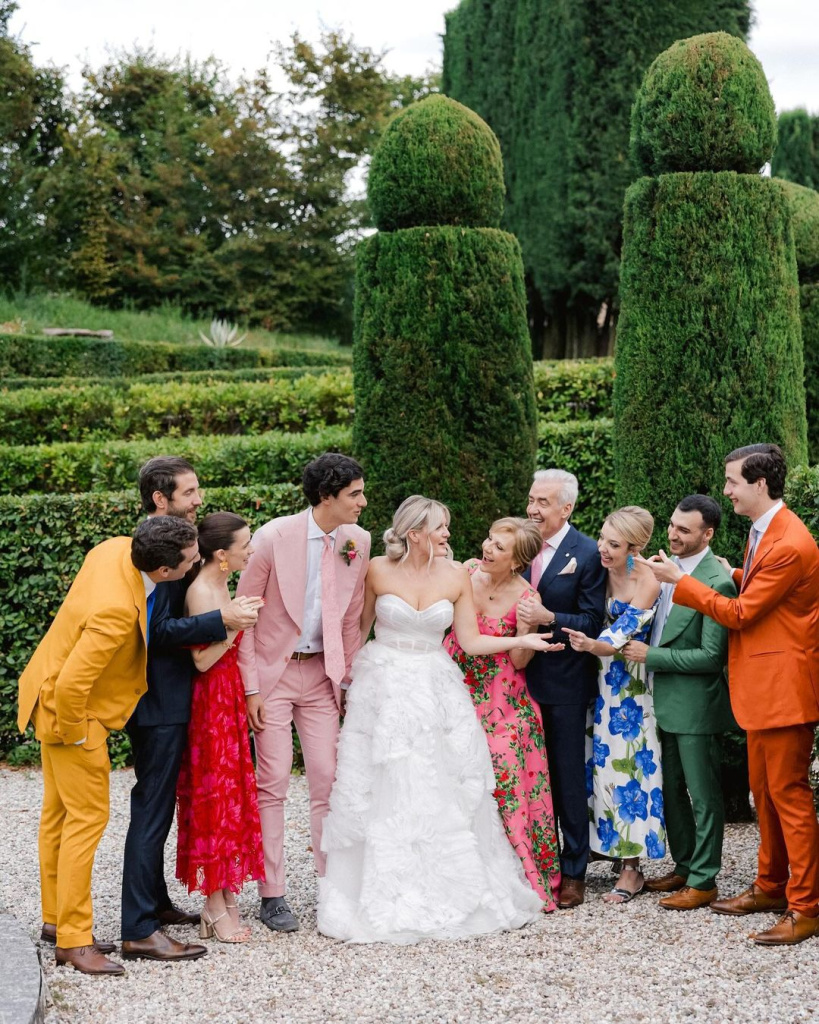
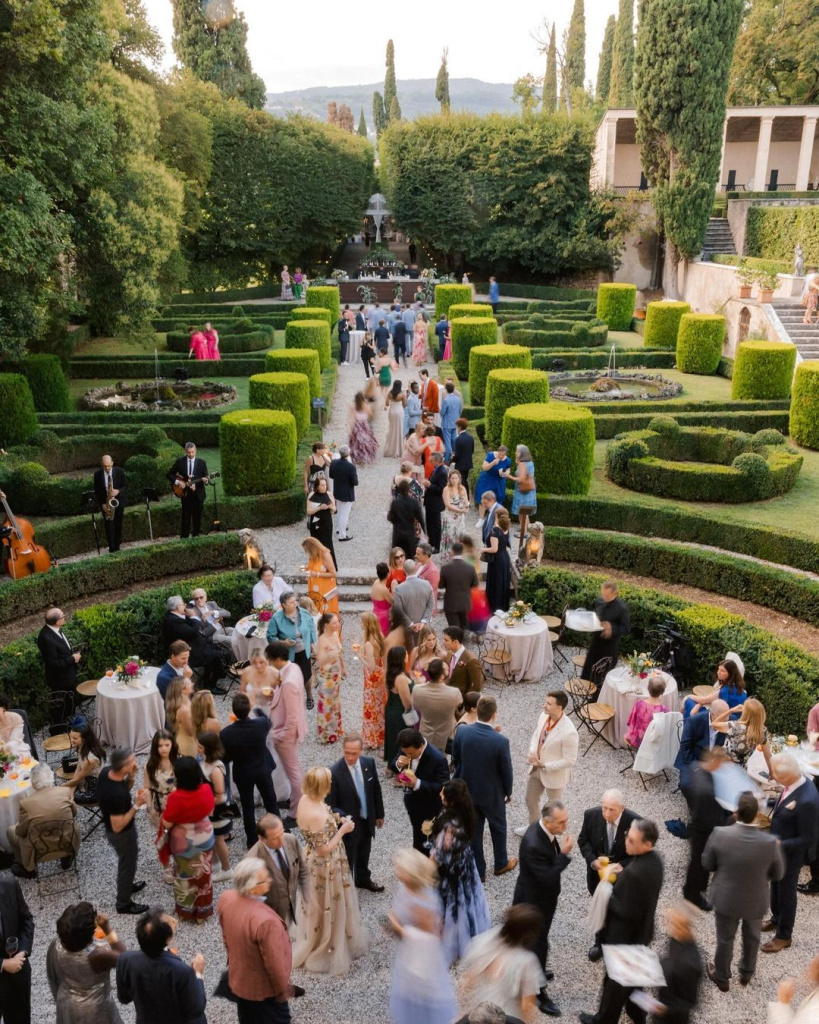
Family members often play critical roles in the wedding, providing both support and structure to the celebrations. From logistics to emotional support, their involvement is key in making the wedding a memorable occasion for everyone.
Mother of the Bride
The mother of the bride typically has a prominent role in the wedding planning process. She may help in selecting the wedding dress, coordinating the reception details, and communicating with vendors. Her responsibilities on the wedding day can include helping the bride get ready, ensuring the bride's needs are met, and acting as a hostess at various points throughout the festivities. She often participates in the ceremony, such as being escorted down the aisle or being part of special traditions like the unity candle ceremony. The mother of the bride also usually plays a key role in greeting guests and ensuring that they feel welcomed.
Father of the Bride
The father of the bride often has the emotional task of walking his daughter down the aisle, a moment that symbolizes his support and approval of the union. Prior to the wedding day, he might assist with logistical arrangements, such as transportation or coordinating accommodations for guests. During the wedding, he is typically involved in key moments like delivering a toast or speech and participating in the father-daughter dance, which are highlights of the celebration. His role as a host alongside the mother of the bride includes greeting guests and maintaining a presence that reflects the family’s hospitality.
Mother of the Groom
The mother of the groom also plays a vital role in the wedding. She is often responsible for the rehearsal dinner, which includes planning, hosting, and ensuring that this pre-wedding event runs smoothly. On the wedding day, her responsibilities might include helping the groom get ready and providing emotional support. She is usually involved in the ceremony, perhaps by walking down the aisle with the groom or another family member. Like her counterpart, the mother of the groom is expected to act as a gracious hostess, engaging with guests and contributing to the overall warmth of the event.
Father of the Groom
The father of the groom typically shares responsibilities with the mother of the groom, especially in hosting the rehearsal dinner. He might offer support in organizing aspects of the wedding that involve his side of the family, such as guest lists or special family traditions to be included in the ceremony. On the wedding day, he can be involved in key moments like toasts, where he may share words of wisdom or humorous anecdotes. His role also includes supporting the groom in any way needed, ensuring the groom feels confident and relaxed. The father of the groom is also expected to participate in hosting duties, helping to greet and mingle with guests.
Siblings of the Bride and Groom
Siblings may not have specific traditional roles, but they often take on significant duties. They might serve as bridesmaids, groomsmen, or even officiants, depending on their relationship with the bride or groom. Siblings can help with planning and executing pre-wedding events, offer moral support, and assist with day-of logistics. During the wedding, they might give readings, help coordinate activities, or manage younger family members. Siblings often provide emotional grounding for the bride and groom, sharing in the joy and stress of the event with a unique familial perspective.
Optional Wedding Party Titles
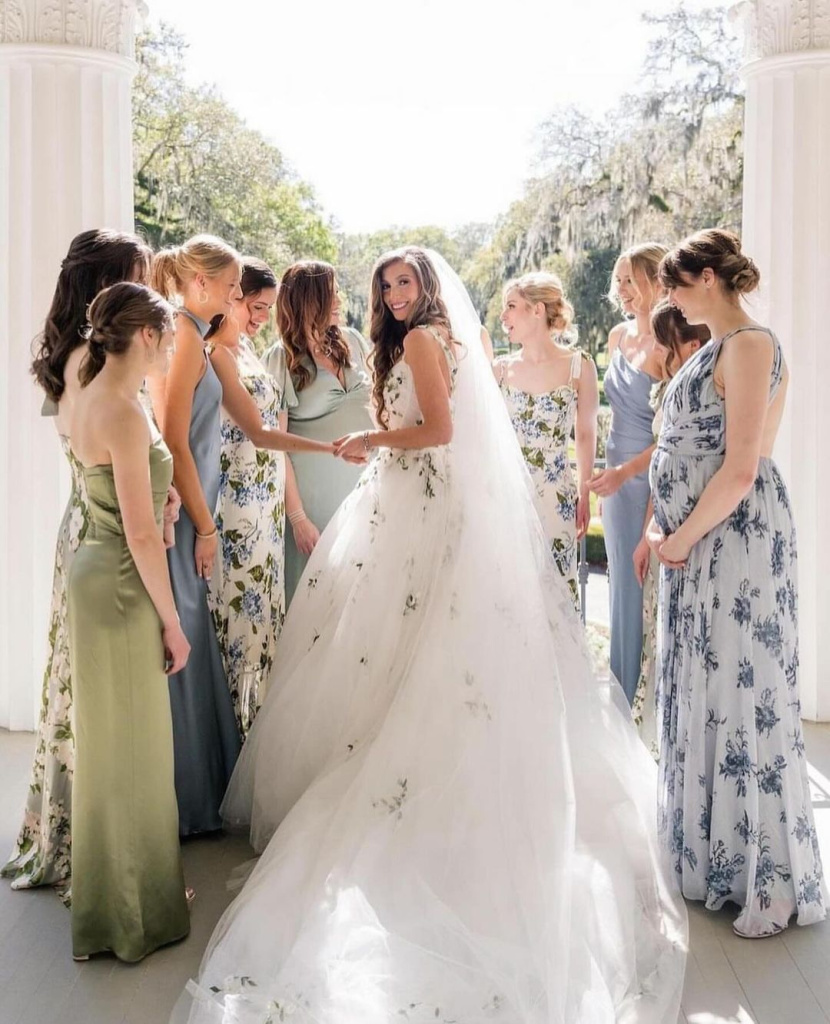
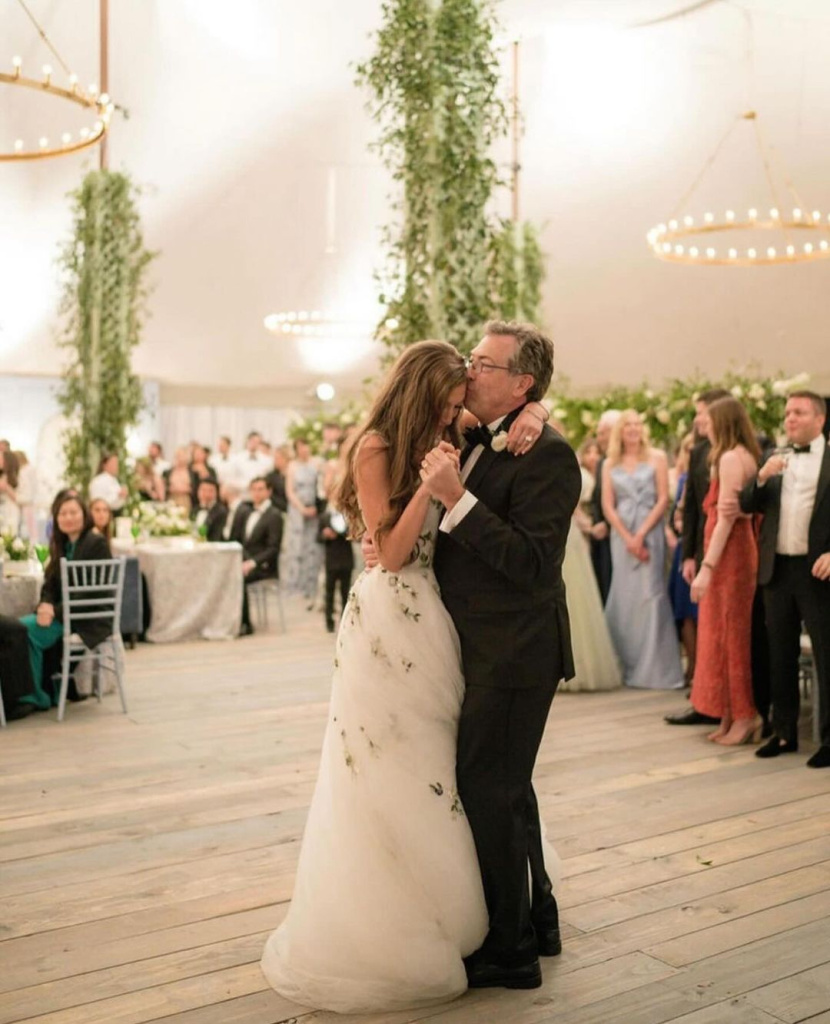
As weddings evolve, so do the roles within them. Many couples opt to include unique and personalized roles in their wedding party list to better reflect their relationships and values. These optional roles can add a special touch to the ceremony and offer a way to involve more loved ones in the celebration.
Page Boys
Page boys often have a ceremonial role similar to that of ring bearers or junior groomsmen. Typically, they are young boys who may carry the bride’s train or important wedding symbols like the rings. Page boys walk down the aisle just before or after the flower girl, often dressed in miniature versions of the groomsmen’s attire. Their participation adds a regal or formal touch to the procession and provides an opportunity for younger family members to be involved in the ceremony.
Matron of Honor
The matron of honor is a married woman who takes on a role similar to that of the maid of honor. Her responsibilities include providing emotional support to the bride, helping with the planning and coordination of wedding activities, and leading the bridesmaids. She plays a key role during the wedding day, from assisting the bride in dressing to giving a speech at the reception. The matron of honor's experience in her own wedding preparations can be invaluable in offering practical advice and support.
Personal Attendants
Personal attendants are chosen to help both the bride and groom with personal tasks throughout the wedding day. These might include last-minute errands, managing the wedding day schedule, or handling emergencies that arise. Personal attendants act as a point of contact for vendors, wedding guests, and the wedding party, ensuring that the couple can focus on enjoying their special day without sweating over the small stuff.
Witnesses
Witnesses are required in many legal traditions to sign the marriage certificate alongside the bride and groom. These are typically trusted friends or family members who have a close relationship with the couple. Their role is primarily legal but being chosen as a witness also symbolizes their importance in the couple's lives and their support of the union.
Readers
Readers contribute to the wedding ceremony by reading passages from religious texts, literature, or personal writings chosen by the couple. This role allows individuals who may not be in the wedding party to participate and contribute in a meaningful way. Readers help set the tone of the ceremony and share messages that resonate with the values and emotions of the occasion.
Candle Lighters
In weddings where a candle lighting ceremony is part of the tradition, candle lighters play a crucial role. They may light candles at the altar before the arrival of the main wedding party, symbolizing the light of love or the guiding light of faith in the couple’s life. This role is often given to younger members of the family or friends who are significant to the couple but not part of the wedding party.
Train Bearers
Train bearers are responsible for holding and arranging the bride’s train during the wedding procession and throughout the ceremony. This role is particularly prominent in weddings with a formal, traditional dress that features a long train. Train bearers ensure that the bride's gown looks its best and moves smoothly, adding to the elegance and visual impact of the ceremony.
Honorary Bridesmaids/Groomsmen
Honorary bridesmaids or groomsmen are individuals who hold a special place in the couple’s hearts but may not take on the full responsibilities of regular bridesmaids or groomsmen. This title is often bestowed upon older relatives, long-distance friends, or others who cannot be actively involved due to various reasons. They are recognized during the wedding and may wear attire coordinating with the wedding party.
Pet of Honor
The pet of honor is a delightful inclusion for couples who consider their pet a part of the family. This role can include walking down the aisle, participating in photos, or just being present at the ceremony. Planning for a pet of honor includes ensuring the comfort and management of the animal, considering venue rules, and possibly appointing someone to take care of the pet throughout the event.







